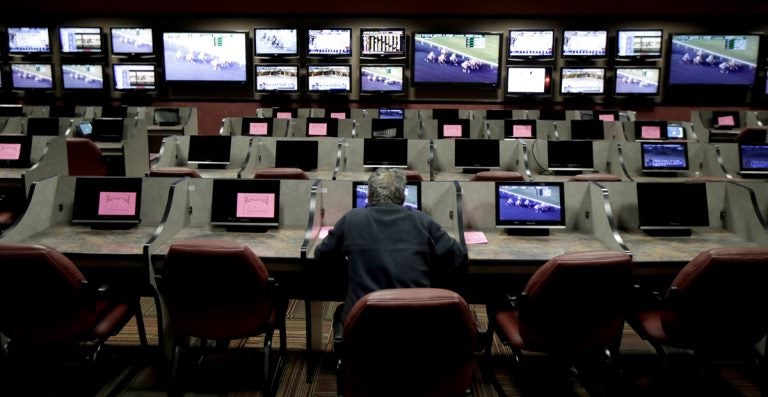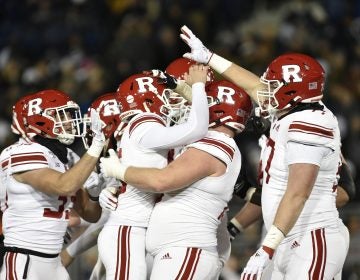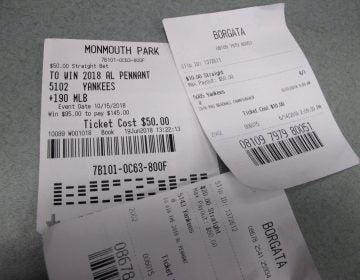Bettors wagered $16M in the first two weeks of N.J. sports betting
The Monmouth Park racetrack, as well as the Borgata and Ocean Resort casinos, reaped $1.2 million in revenue from completed bets between June 14-30.

The Monmouth Park racetrack in Oceanport, N.J. (Julio Cortez/AP Photo)
People with opinions on professional sports — and enough confidence to put their money where their mouth is — wagered $16.4 million in the first two weeks of legalized sports betting in New Jersey, a month after the U.S. Supreme Court lifted a nationwide ban on the practice.
The Monmouth Park racetrack in Oceanport, as well as the Borgata and Ocean Resort casinos in Atlantic City, reaped $1.2 million in revenue from completed bets between June 14-30.
Of the $16.4 million wagered, about $1 million was bet on future events that have not yet paid out.
Players bet $10.1 million on events related to Major League Baseball and $2.2 million on soccer.
The numbers were released Thursday by the state Division of Gaming Enforcement.
“It’s a very good indicator that [sports betting] has taken off and is going to continue to grow,” said Rummy Pandit, executive director of the Lloyd D. Levenson Institute of Gaming Hospitality & Tourism at Stockton University.
The first two weeks of legalized sports betting in New Jersey came after years of courtroom battles in which the state sought to lift the federal ban on athletic wagering outside Nevada and a few other states.
Former Gov. Chris Christie and other Garden State officials hailed the May decision as a major step forward for New Jersey, which was hoping use sports betting to increase its tax revenues and prop up the struggling gambling market in Atlantic City.
Monmouth Park and Borgata began accepting wagers on June 14th, followed by Ocean Resort which opened its sportsbook on June 28th.
For the period covered in Thursday’s report, the three venues must pay an 8.5 percent state tax on nearly $3.5 million, which includes not only gross revenue but also future bets that are not yet complete as well as winnings that bettors have not yet collected.
Bettors have a year to pick up their winnings. After that, the money is split evenly between the state and the racetrack or casino.
WHYY is your source for fact-based, in-depth journalism and information. As a nonprofit organization, we rely on financial support from readers like you. Please give today.




